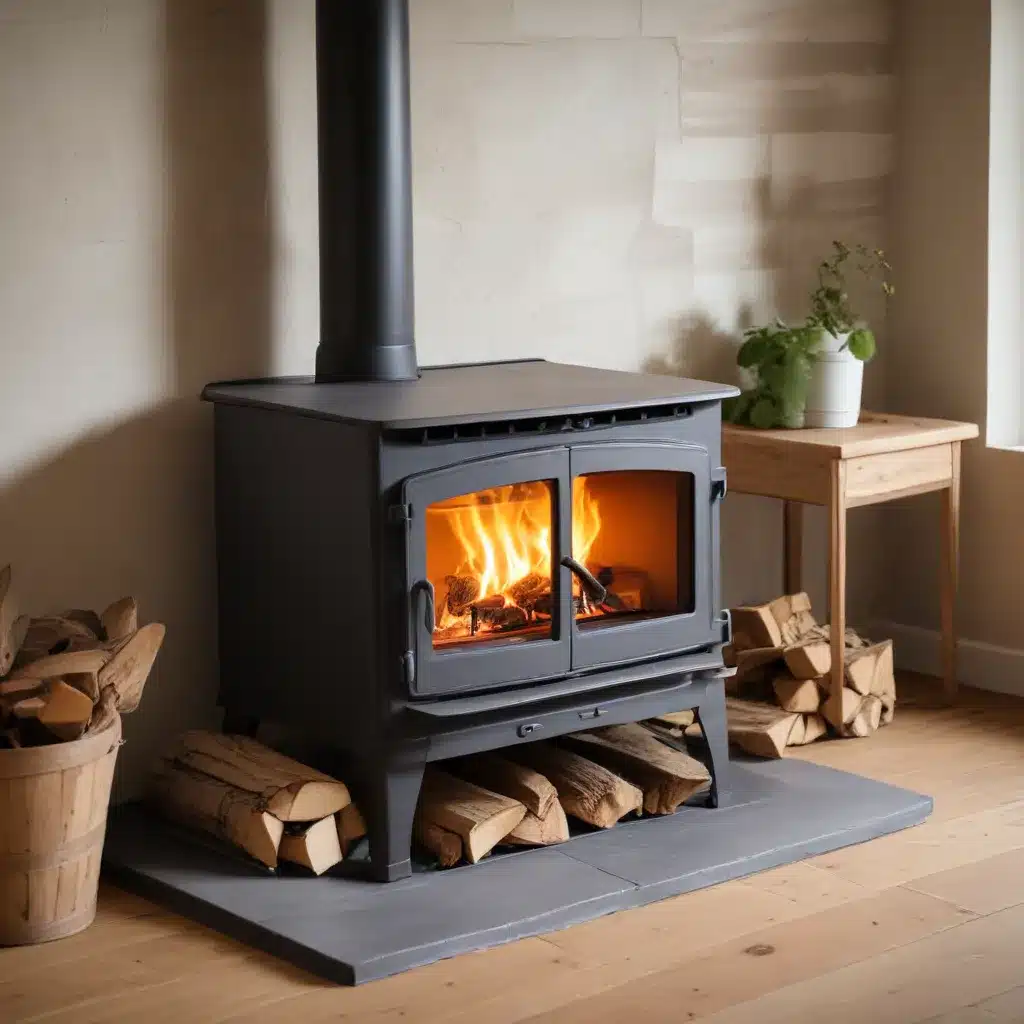
The Benefits of Sustainable Heating with Wood Stoves
In an era when environmental concerns are top of mind, selecting eco-friendly heating solutions can help us significantly reduce our carbon footprint. One option that stands out is the use of modern, efficient wood stoves. These classic yet innovative appliances provide a sustainable alternative to electric or gas-powered heating, allowing you to minimize your environmental impact while enjoying the cozy ambiance of a real fire.
Wood stoves offer several advantages when it comes to sustainability. Firstly, they utilize a renewable fuel source – wood. Unlike fossil fuels such as coal or natural gas, which release ancient carbon that has been trapped underground for millions of years, the carbon emitted from burning wood is part of the natural carbon cycle. As long as new trees are grown to replace harvested ones, wood burning can be considered carbon-neutral.
Moreover, the manufacturing and transportation of firewood for wood stoves have a relatively low environmental impact compared to the extraction, processing, and transportation of fossil fuels. Responsible forestry practices ensure that forests remain healthy and biodiverse, while using locally sourced wood minimizes the carbon emissions associated with fuel transportation.
Increased Efficiency and Reduced Emissions
Modern wood stove designs have also made significant advancements in terms of efficiency and emissions reduction. New wood stoves are engineered to burn wood effectively, resulting in minimal smoke and pollution. By converting fuel into heat more efficiently, wood stoves can provide heating and cooking with less energy waste, making them a more eco-friendly option compared to electric or gas-powered alternatives.
The Role of Proper Wood Stove Maintenance
Maintaining your wood stove is crucial to ensure optimal performance and environmental benefits. Properly seasoning and storing firewood, for example, can significantly improve the efficiency of your wood stove and reduce emissions. Seasoned wood, with a moisture content of 20% or less, burns cleaner and hotter, providing more heat output while generating less smoke and pollutants.
Exploring Eco-Friendly Wood Stove Models
When selecting an eco-friendly wood stove, there are several factors to consider:
High-Efficiency Wood Stoves
Look for wood stove models that boast high efficiency ratings, often in the range of 70-80% or higher. These advanced designs maximize the conversion of wood into usable heat, minimizing waste and emissions. Some top-performing eco-friendly wood stove models include the Blaze King King, the Regency Cascades, and the Quadra-Fire 4100 I.
EPA-Certified Wood Stoves
The U.S. Environmental Protection Agency (EPA) has established strict emission standards for wood stoves, and EPA-certified models are required to meet these guidelines. Choosing an EPA-certified wood stove ensures that your heating solution adheres to the latest air quality regulations, reducing the environmental impact of wood burning. Some popular EPA-certified options include the Lopi Answer, the Jotul F 45, and the Harman Accentra Insert.
Catalytic Wood Stoves
Catalytic wood stoves incorporate a catalytic combustor, which further reduces emissions by burning off particulates and volatile organic compounds (VOCs) in the smoke. This technology helps to maximize efficiency and minimize the environmental impact of wood burning. Examples of eco-friendly catalytic wood stove models include the Woodstock Soapstone Keystone and the Kuma Kamado.
Pellet Stoves
While not technically wood stoves, pellet stoves offer another eco-friendly heating solution. These appliances burn compressed wood pellets, which are a renewable and sustainable fuel source. Pellet stoves are known for their high efficiency and low emissions, making them a viable option for environmentally conscious homeowners. Some top-rated pellet stove models include the Harman P43 and the Quadra-Fire Mt. Vernon AE.
Maximizing the Environmental Benefits of Wood Stoves
To truly harness the eco-friendly potential of your wood stove, it’s essential to ensure proper installation, maintenance, and fuel management. Here are some tips to help you get the most out of your sustainable heating solution:
Proper Wood Stove Installation
Ensure that your wood stove is installed by a qualified professional, following all local building codes and safety regulations. Proper installation is crucial for optimal performance and safety.
Seasoned Firewood
Always use well-seasoned firewood with a moisture content of 20% or less. Burning wet or unseasoned wood can result in decreased efficiency, increased emissions, and the buildup of creosote in the chimney, which can lead to dangerous chimney fires.
Maintenance and Cleaning
Regularly clean and maintain your wood stove to keep it running at peak efficiency. This includes cleaning the glass, removing ash buildup, and inspecting the chimney for any blockages or damage.
Responsible Forestry Practices
When sourcing your firewood, consider working with local, sustainably-managed forests. This helps to ensure that the wood you burn is part of a renewable and environmentally-conscious supply chain.
Efficient Wood Stove Operation
Operate your wood stove in accordance with the manufacturer’s instructions, adjusting airflow and fuel load to achieve the most efficient and clean burn possible.
By incorporating these eco-friendly practices into your wood stove usage, you can significantly reduce your carbon footprint and contribute to a more sustainable future.
Conclusion: A Greener Heating Future with Wood Stoves
In an age where sustainability is more crucial than ever, selecting heating solutions that help minimize our environmental impact is a critical consideration. Wood stoves, with their use of renewable energy and time-honored heating techniques, offer a practical and eco-friendly alternative to traditional heating methods.
By choosing high-efficiency, EPA-certified, or catalytic wood stove models, and by maintaining these appliances properly, you can experience the warmth and ambiance of a real fire while reducing your carbon footprint. As you explore the world of eco-friendly wood stoves, you’ll be making a meaningful contribution to a more sustainable future.
For more information on how a wood stove can benefit you and the environment, visit the experts at Wood Stove Heaters today.


